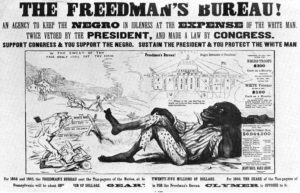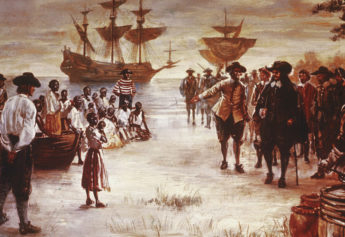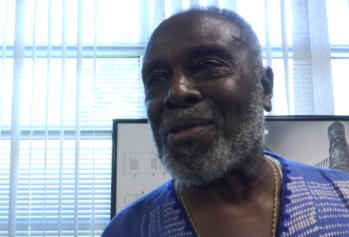In 2015, the Freedmen’s Bureau meets the information age.
At a time when Black people are faced with a multitude of crucial issues impacting their future, including police violence, the criminal justice system and racism, now there is an opportunity for African-Americans to reconnect with their past. On June 19, the 150th anniversary of Juneteenth, the holiday marking the end of slavery, a free online service was announced that will allow Black people to trace their ancestry through the end of slavery.
In Los Angeles, a partnership of organizations — including FamilySearch International, the National Archives and Records Administration (NARA), the Smithsonian National Museum of African American History and Culture, the Afro-American Historical and Genealogical Society (AAHGS) and the California African American Museum — announced the Freedmen’s Bureau Project. Located at the website Discoverfreedmen.org, the project has compiled and digitized the 1.5 million handwritten records from the Freedmen’s Bureau, the federal agency established by Congress during Reconstruction to transition to citizenship the 4 million then-newly emancipated former enslaved people in 15 states and the District of Columbia.
The Freedmen’s Bureau established schools, provided food, housing, medical aid and legal assistance and attempted to settle former slaves on land confiscated from the Confederacy. The records maintained by the bureau — which included full names, dates of birth and slave ownership history, as well as church membership, financial and marriage information — will be fully available online in 2016 to coincide with the opening of the Smithsonian National Museum of African American History and Culture on the National Mall in Washington.
“The records serve as a bridge to slavery and freedom. You can look at some of the original documents that were created at the time when these people were living. They are the earliest records detailing people who were formerly enslaved. We get a sense of their voice, their dreams,” said Hollis Gentry, a genealogy specialist at the Smithsonian. “I predict we’ll see millions of living people find living relatives they never knew existed. That will be a tremendous blessing and a wonderful, healing experience,” Gentry added.
“Most African-Americans still think they can’t find their slave ancestors, but they can,” says Kenyatta Berry, a professional genealogist who is president of the Association of Professional Genealogists and host of the PBS show Genealogy Roadshow. Berry says that while the connection to slavery represents a painful past for Black people, linking people to their ancestry can provide a silver lining. “When you grow up in America and you don’t look like everyone else, it’s important to have that connection to your family history,” she added.
Traditionally, African-Americans who have attempted to trace their ancestry often encountered a brick wall at 1870. “The 1870 brick wall is important because 1870 was the first census when African-Americans were enumerated,” said Berry. “Prior to that, if they were enslaved, it’s very difficult to find information on them, but you can.”
During slavery, Black people were considered as property by law, and as such, records of their existence were often limited to dash marks. The law dehumanized the enslaved and rendered them invisible, as the U.S. Constitution counted three-fifths of each Black person in order to determine the political representation of Southern states. Further, in the Dred Scott v. Sandford decision, the U.S. Supreme Court ruled that Black people were “so far inferior that they had no rights which the white man was bound to respect.”
Sankofa is an Akan (Ghana) word, which is interpreted to mean “go back to the past and recover it,” “return to the source,” “reach back and get it,” and “we must go back and reclaim our past so we can move forward; so we understand why and how we came to be who we are today.” Today in the digital age, after being told for years that their history and their lives do not matter, the descendants of those once held in bondage can reclaim their past and hopefully move ahead.
Books to read for more information about the Freedmen’s Bureau & Reconstruction:
Forty Acres and a Mule: The Freedmen’s Bureau and Black Land Ownership



